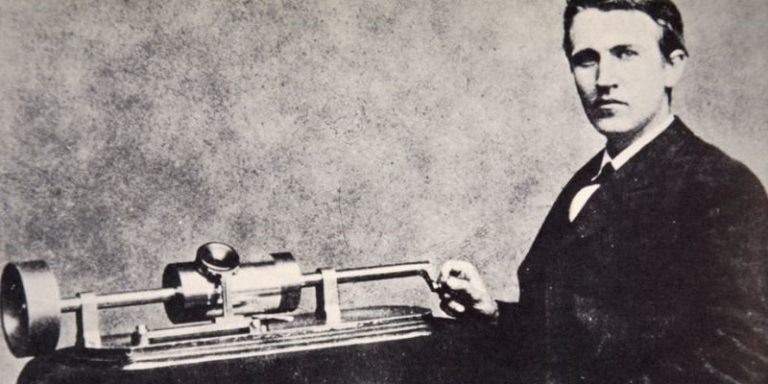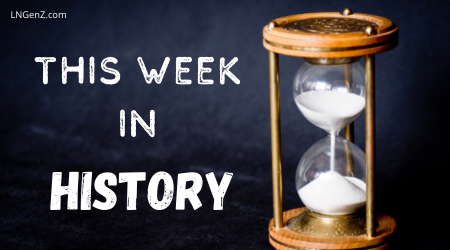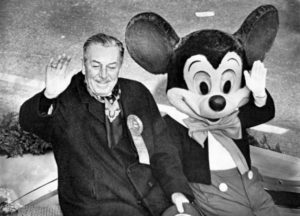This Week in History: December 4 – 10
Thomas Edison Invents the Phonograph.
By: Kelli Ballard | December 4, 2022 | 1038 Words

(Photo by Historica Graphica Collection/Heritage Images/Getty Images)
“I go into my library and all history unrolls before me.” ~ Alexander Smith
December 6, 1877: Thomas Edison Makes First Recording on Phonograph
There have been a lot of great technological advancements just in the last couple of decades, such as cell phones, smart watches, and musical programs. But none of these would have been possible without extraordinary inventions from determined inventors in history. Take the phonograph for instance. Without this creation, we would not have records, CDs, or DVDs today.
Although most known for his invention of the lightbulb, Thomas Edison also brought us a way to record and listen to sound. On this day, Edison completed his creation of the phonograph in his New Jersey laboratory. To test it, he recorded himself saying a verse from the popular children’s song, “Mary Had a Little Lamb.”
However, this was not his original intent. The inventor was trying to find a way to record telephone conversations when he stumbled upon this invention. But thankfully, his discovery worked and has been built upon over the years so that, today, we can simply put in earbuds to listen to our favorite artists, turn on a radio in a car, watch music videos on YouTube, and so much more.
Other Notable History Mentions
December 4, 1791: The oldest Sunday newspaper in the world, the Observer, was first published in Britain.
December 4, 1918: Serbian Prince Regent Alexander Karadjordjevic proclaimed the Kingdom of the Serbs, Croats, and Slovenes, under King Peter I of Serbia.
 December 4, 1943: The second Cairo Conference happened during World War II. It was attended by President Inonu of Turkey, Prime Minister Winston Churchill of the UK, and US President Franklin D. Roosevelt.
December 4, 1943: The second Cairo Conference happened during World War II. It was attended by President Inonu of Turkey, Prime Minister Winston Churchill of the UK, and US President Franklin D. Roosevelt.
December 4, 1991: Associated Press Journalist Terry Anderson, the last American hostage in Lebanon, was released.
December 5, 1492: Christopher Columbus discovered Haiti.
December 5, 1791: Famous composer Wolfgang Amadeus Mozart died.
December 5, 1876: President Ulysses S. Grant gave a speech to Congress, apologizing for the mistakes he made, saying they were “errors of judgment, not intent.”
December 5, 1933: The 18th Amendment, which prohibited alcohol, was repealed after being in place for almost 14 years.
December 5, 1955: The bus boycott in Montgomery, Alabama began after Rosa Parks, a black woman, was arrested for not giving up her seat to a white man.
December 6, 1492: Christopher Columbus discovered the island of Hispaniola, which, today, is divided between the Dominican Republic and Haiti.
December 6, 1865: Slavery was abolished when the 13th Amendment to the Constitution was ratified. It states, “Neither slavery nor involuntary servitude, save as a punishment for crime whereof the party shall have been duly convicted, shall exist within the United States, or any place subject to their jurisdiction.”
December 6, 1971: India recognized the Democratic Republic of Bangladesh, which used to be known as East Pakistan. After that, Pakistan broke off diplomatic relations with India.
December 6, 1973: Vice President Spiro Agnew resigned over charges of tax evasion and Gerald Ford was sworn in as the new VP under Richard Nixon.
December 7, 1787: Delaware adopted the new US Constitution, becoming the first state to do so.
December 7, 1941: The attack on Pearl Harbor in Hawaii by the Japanese. This brought the US into World War II.
December 8, 1941: The US and Britain declared war on Japan.
December 8, 1980: John Lennon, from the music group known as the Beatles, was assassinated in New York City.
December 8, 1987: President Ronald Reagan and Mikhail Gorbachev, Soviet Russia’s General Secretary, signed the INF Treaty. This got rid of intermediate and shorter-range nuclear missiles.
December 9, 1941: China declared war against Japan, Germany, and Italy.
December 9, 1993: The Hubble Space Telescope repairs were finished by US astronauts.
December 10, 1896: Alfred Nobel died in Italy. His will made it so that his money would be used to issue awards to recognize people who made valuable contributions to society – The Nobel Prize.
Famous Birthdays
Thomas Carlyle (December 4, 1795) was born in the village of Ecclefechan, Scotland. Aside from a three-volume history of the French Revolution, he also wrote Life and Letters of Oliver Cromwell, Frederick the Great, and Heroes and Hero-Worship.
Martin Van Buren (December 5, 1782) was born in Kinderhook, New York. He was the eighth president, and the first to be born a citizen of the United States.
George Armstrong Custer (December 5, 1839) was born in New Rumley, Harrison County, Ohio. He fought in the Civil War and then against the Sioux. He was fighting the Sioux when he was killed at Little Bighorn in Montana.

Walt Disney and Mickey Mouse (Photo by Bettmann Archive/Getty Images)
Walt Disney (December 5, 1901) was born in Chicago, Illinois. He produced Steamboat Willie, which starred Mickey Mouse, then his first full-length animated film, Snow White and the Seven Dwarfs. In 1955, he opened Disneyland.
Ira Gershwin (December 6, 1896) was born in New York City. He and his brother created a lot of Broadway musical successes, including Funny Face, Strike up the Band, and Someone to Watch Over Me.
Alfred Eisenstaedt (December 6, 1898) was born in Kreis Dirschau, Prussia. A photojournalist, his most-known work was Life magazine cover photos, including the one celebrating the end of World War II that shows a sailor kissing a nurse in Times Square.
Marie Tussaud (December 7, 1761) was born in Bern, Switzerland. She made wax models and, in 1802, established the famous Madame Tussaud’s waxworks in London.
Eli Whitney (December 8, 1765) was born in Westboro, Massachusetts. He invented the cotton gin.
John Milton (December 9, 1608) was born in London. He is considered a very important poet, second to Shakespeare. Some of his works include Paradise Lost, Paradise Regained, and The Tenure of Kings and Magistrates.
Clarence Birdseye (December 9, 1886) was born in Brooklyn, New York. One of the founders of General Foods Corp., he invented a way to deep-freeze foods.
Thomas Gallaudet (December 10, 1787) was born in Philadelphia, Pennsylvania. In 1817, he co-founded the American School for the Deaf in Hartford, Connecticut.
Emily Dickinson (December 10, 1830) was born in Amherst, Massachusetts. She was a poet who wasn’t discovered until after her death, when her sister found nearly 2,000 poems that had been written on scraps of paper and envelopes. Starting in 1890, they were gradually published for the next 50 years.
Melvil Dewey (December 10, 1851) was born in Adams Center, New York. He invented the Dewey decimal system which classified books.
















